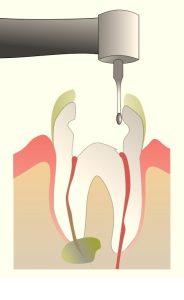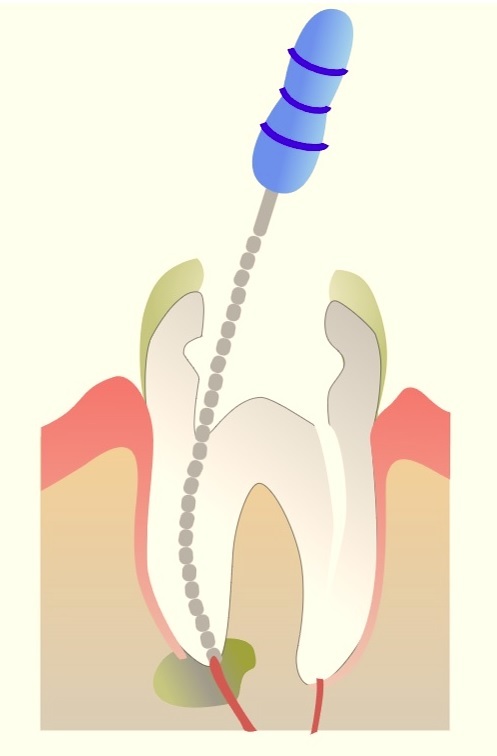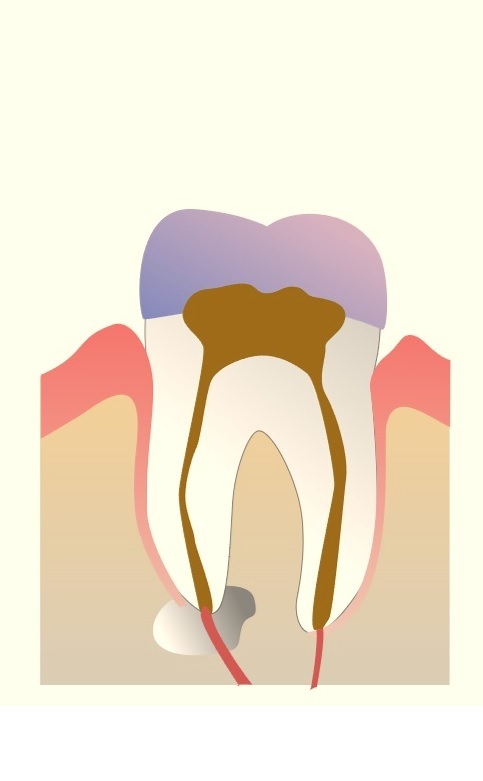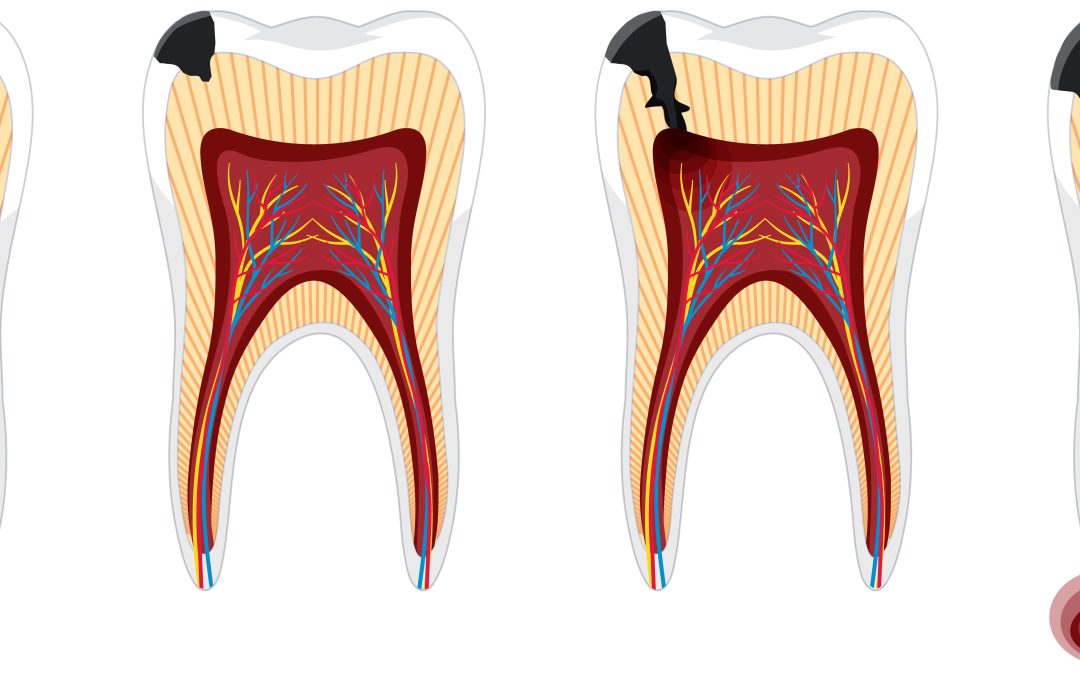Overview of Root Canal Treatment
What is a Root Canal?
A root canal is a dental procedure to repair and save a severely damaged or infected tooth. Each tooth has a pulp chamber containing nerves and blood vessels. When this pulp becomes infected or inflamed, it can cause significant pain and discomfort. A root canal involves:
- Removing the infected pulp.
- Cleaning and disinfecting the tooth’s interior.
- Sealing it to prevent further infection.
Why You May Need a Root Canal
What are Some Symptoms that Indicate You May Need Root Canal Treatment?
Root canals become necessary when the pulp inside a tooth is compromised. Some common signs that you may need a root canal include:
- Severe Toothache: Intense, throbbing pain in a specific tooth.
- Sensitivity: Increased sensitivity to hot or cold temperatures.
- Swelling: Swelling of the gums around the affected tooth.
- Abscess: Development of a pimple-like bump on the gums.
- Discolouration: Darkening or discolouration of the affected tooth.

If you experience any of these symptoms, it’s crucial to consult your dentist promptly to assess the need for a root canal.
Getting Started on Root Canal Treatment
Who Should Perform My Root Canal Procedure?
Root canal treatment is typically performed by endodontists, who are specialists in treating dental pulp and the tissues surrounding the roots of the teeth. Your general dentist may also perform root canals, but you may be referred to an endodontist in complex cases.
How Long Does a Root Canal Take?
The duration of a root canal procedure varies depending on the tooth’s location, complexity, and the extent of the infection. On average, a root canal can take one to two hours. However, this may be divided into multiple appointments.
Do Root Canals Hurt?
Contrary to popular belief, root canals are not painful. They are performed to relieve pain caused by tooth infections. Local anaesthesia is administered to ensure that you are comfortable during the procedure. After the procedure, you may experience mild discomfort, which can be managed with over-the-counter pain relievers.
Clearing Up Root Canal Infection
- Anesthesia: Local anesthesia is administered to numb the affected tooth and surrounding area.
- Access Opening: A small access hole is created in the tooth’s crown to reach the infected pulp chamber.
- Removal of Infected Pulp: The infected or inflamed pulp is carefully removed using specialized instruments.
- Cleaning and Shaping: The tooth’s interior is cleaned and shaped to prepare it for the filling material.

Filling the Root Canals
Final Stage of a Root Canal
After thoroughly cleaning and shaping the tooth, it’s time to fill the root canals. This is done with a biocompatible gutta-percha material, which seals the canals to prevent recontamination.


Recovering from Root Canal Treatment
Recovery from a root canal is typically straightforward. Here’s what you can expect:
- Post-Procedure Discomfort: You may experience mild discomfort for a few days, which can be managed with over-the-counter pain relievers.
- Restoration: After the root canal, your tooth may require a crown to protect and restore its function and appearance. Your dentist will discuss this with you.
- Long-term Success: With proper care, a tooth that has undergone a successful root canal can last a lifetime.
In conclusion, root canal treatment is a vital dental procedure that can save your natural teeth and eliminate pain caused by tooth infections. If you’re experiencing any of the symptoms mentioned earlier, it’s crucial to consult with a dentist to determine if a root canal is the best course of action. We are committed to providing you with the highest quality dental care, including root canal treatment, to ensure oral health and comfort at Roots and Crown. Don’t let the fear of a root canal keep you from a healthier, pain-free smile!
How long does root canal recovery take?
What happens during the root canal process?
How should I prepare for root canal treatment?
What should I expect after a root canal?
What are the advantages of having a root canal procedure?
- Relieving pain.
- Preventing the spread of infection.
- Maintaining proper oral function and aesthetics.
Are root canals safe?
What are common failed root canal symptoms?
What if my root canal fails?
What are the alternatives to root canal treatment?
Can I eat after a root canal?
Can you drive after a root canal?
Can you smoke after a root canal?
When can I resume work, school, or other activities?
What are some root canal aftercare tips?
- Maintain good oral hygiene.
- Follow your dentist’s post-procedure instructions.
Attend any scheduled follow-up appointments. These measures will ensure a smooth and successful recovery.

